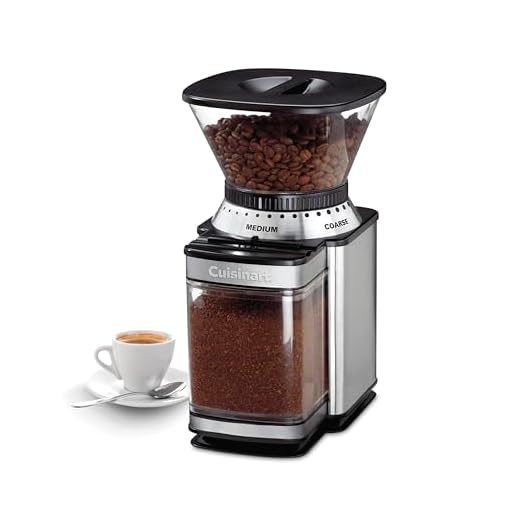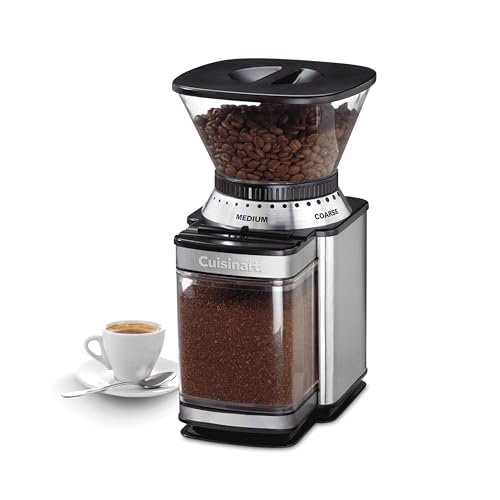



If you’re a coffee lover, there’s nothing worse than when your beloved coffee machine fails to make a delicious cup of joe. You might wake up in the morning, eagerly anticipating that first sip, only to be met with disappointment as you take a taste. So, what could be causing your coffee machine to not taste great?
One possible reason is that your coffee machine needs a good cleaning. Over time, mineral deposits, oils, and leftover coffee grounds can accumulate and affect the flavor of your brew. Cleaning your coffee machine regularly can help remove these build-ups and ensure that your coffee tastes fresh and full-bodied.
Another factor to consider is the water you’re using. The quality of water can greatly impact the taste of your coffee. If your tap water has a strong chlorine or mineral taste, it’s likely that your coffee will taste off as well. Using filtered water or spring water can help improve the flavor of your brew.
Furthermore, the type and freshness of the coffee beans you use play a crucial role in the taste of your coffee. Stale or low-quality beans can result in a lackluster brew. For the best flavor, opt for freshly roasted beans and grind them just before brewing. Experimenting with different types of beans and roasts can also help you find the perfect cup of coffee.
In conclusion, several factors can contribute to your coffee machine not tasting great. Regular cleaning, using filtered water, and using high-quality, freshly roasted beans are essential for a delicious cup of coffee. So, give your coffee machine some TLC and get ready to enjoy a rich and flavorful brew!
Common Problems with Coffee Machines
Many coffee lovers rely on their coffee machines to start their day with a perfect cup of joe. However, sometimes the taste doesn’t live up to their expectations. Here are some common problems that coffee machine owners may encounter:
1. Incorrect Grind Size
The grind size of your coffee beans plays a crucial role in the taste of your coffee. If the grind size is too coarse, the water may flow through too quickly, resulting in a weak and under-extracted brew. On the other hand, if the grind size is too fine, the water may not flow through properly, leading to over-extraction and a bitter taste.
To solve this problem, make sure to adjust the grind size of your coffee beans according to the brewing method you are using. Different brewing methods, such as espresso, French press, or drip coffee, require different grind sizes to achieve the best flavor.
2. Dirty or Clogged Machine
A dirty or clogged coffee machine can significantly impact the taste of your coffee. Coffee oils and mineral deposits can build up over time, resulting in a bitter or funky flavor. Additionally, a clogged machine may not allow water to flow properly, resulting in weak and under-extracted coffee.
To prevent this issue, it’s essential to regularly clean your coffee machine. Follow the manufacturer’s instructions for cleaning and descaling the machine. Use a dedicated coffee machine cleaner or a mixture of vinegar and water to remove any built-up residue.
3. Poor Water Quality
The quality of the water you use can affect the taste of your coffee. Hard water with high mineral content can leave behind deposits and alter the flavor of your brew. On the other hand, water with impurities or a strong taste can also impact the overall coffee taste.
To solve this problem, consider using filtered water or bottled water specifically designed for brewing coffee. This will help minimize any unwanted flavors or impurities that may affect your coffee’s taste.
Conclusion: By addressing these common problems with coffee machines, you can improve the taste of your morning brew. Adjusting the grind size, regularly cleaning your machine, and using quality water are simple steps to ensure your coffee tastes great every time.
Coffee Taste Issues
When it comes to enjoying a good cup of coffee, the taste is of utmost importance. However, there are times when your coffee machine may not be producing the desired taste. Here are some common issues that may be affecting the taste of your coffee:
1. Stale Coffee Beans
One possible reason for your coffee not tasting great could be the use of stale coffee beans. Over time, coffee beans lose their freshness and develop a flat, dull taste. To ensure a better taste, it is important to use freshly roasted coffee beans. Consider purchasing whole beans and grinding them just before brewing to capture the optimum flavor.
2. Incorrect Brewing Temperature
The temperature at which coffee is brewed plays a vital role in achieving the perfect taste. If your coffee machine is not reaching the right brewing temperature, it can result in under-extracted or over-extracted coffee. This can lead to a bitter or weak taste respectively. Consult your machine’s manual to determine the correct brewing temperature and make adjustments if necessary.
3. Dirty Equipment
Another factor that can affect the taste of your coffee is dirty equipment. Coffee oils and residue can build up over time, leaving behind a rancid taste. Regular cleaning of your coffee machine, grinder, and other brewing equipment is essential to prevent the accumulation of these residues. Refer to the manufacturer’s instructions for proper cleaning techniques.
4. Poor Water Quality
The water you use to brew your coffee can greatly impact its taste. If you are using tap water, it may contain impurities or minerals that affect the flavor. Consider using filtered or bottled water to achieve a cleaner taste. Additionally, make sure the water is at the right temperature for brewing, as extremely hot or cold water can alter the taste.
5. Improper Coffee-to-Water Ratio
Getting the coffee-to-water ratio right is crucial for a balanced and flavorful cup of coffee. Too much coffee in relation to water can result in an overpowering, bitter taste, while too little coffee can make it taste weak and watery. Use the recommended measurements provided by your coffee machine or experiment to find the perfect ratio that suits your taste preferences.
| Issue | Possible Cause |
|---|---|
| Stale coffee taste | Use of stale coffee beans |
| Bitter taste | Incorrect brewing temperature or dirty equipment |
| Weak or watery taste | Poor water quality or improper coffee-to-water ratio |
By addressing these potential issues, you can improve the taste of your coffee and ensure a more enjoyable brewing experience.
Machine Maintenance
If your coffee machine is not tasting great, it could be due to a lack of proper maintenance. Regular cleaning and descaling are essential to ensure that your machine performs at its best and produces high-quality coffee. Here are some maintenance tips to improve the taste of your coffee:
| Cleaning the brew basket and carafe: | Residue from old coffee grounds can build up over time, affecting the taste of your coffee. Clean the brew basket and carafe regularly with warm soapy water to remove any remaining oils and residue. |
| Descaling the machine: | Hard water deposits can accumulate in your coffee machine, leading to a bitter taste. Descaling removes these deposits and improves the flavor of your coffee. Follow the manufacturer’s instructions for the appropriate descaling solution and process. |
| Replacing the water filter: | If your coffee machine has a water filter, make sure to replace it regularly. A clogged or expired filter can affect the taste of your coffee. |
| Cleaning the water reservoir: | The water reservoir should be cleaned regularly to prevent the growth of bacteria and mold. Use a mixture of water and vinegar to clean the reservoir, and rinse thoroughly before using it again. |
| Checking the coffee bean grinder: | If your coffee machine has a built-in grinder, ensure that it is properly adjusted. If the grind is too fine or too coarse, it can affect the taste of your coffee. Consult the user manual for instructions on adjusting the grind size. |
By following these maintenance tips, you can ensure that your coffee machine is in optimal condition and that your coffee tastes great every time. Remember to consult the manufacturer’s instructions for specific cleaning and maintenance recommendations for your machine.
Brewing Techniques
When it comes to brewing coffee, there are several techniques that can greatly affect the taste of your coffee. Here are a few factors to consider:
Grind Size
The size of the coffee grounds you use can greatly impact the taste of your coffee. If the grind is too fine, it can result in over-extraction and a bitter taste. On the other hand, if the grind is too coarse, the coffee may taste weak and under-extracted.
Water Temperature
The temperature of the water during brewing is essential for extracting the optimal flavors from your coffee. If the water is too hot, it can lead to a burnt taste, while water that is too cold can result in a flat and dull flavor.
Brewing Time
The brewing time also plays a crucial role in the taste of your coffee. If the coffee is brewed for too long, it can become over-extracted and taste bitter. Conversely, if it is brewed for too short a time, it may taste weak and lack complexity.
Ratios
The ratio of coffee to water is another important aspect of brewing. Using too little coffee can result in a weak and watery flavor, while using too much can lead to an overpowering and bitter taste.
It is important to experiment with these brewing techniques to find the perfect balance that suits your taste preferences. Additionally, make sure to follow the manufacturer’s instructions for your specific coffee machine to ensure optimal brewing results.
| Grind Size | Water Temperature | Brewing Time | Ratios |
|---|---|---|---|
| Too fine | Too hot | Too long | Too little coffee |
| Too coarse | Too cold | Too short | Too much coffee |
Q&A
Why does my coffee taste bitter?
There are a few reasons why your coffee might taste bitter. One possibility is that you are using too much coffee grounds or grinding them too fine, which can lead to over-extraction. Another possibility is that your water temperature is too high, causing the coffee to become over-extracted. Finally, the bitterness could also be a result of using low-quality coffee beans.
Why does my coffee taste weak?
If your coffee tastes weak, it could be because you are not using enough coffee grounds. It is recommended to use one to two tablespoons of coffee grounds per six ounces of water. You should also make sure that you are using fresh coffee beans, as stale beans can result in a weak-tasting coffee.
Why does my coffee taste sour?
If your coffee tastes sour, it is likely under-extracted. This means that not enough flavor has been extracted from the coffee grounds. To remedy this, you can try using a finer grind size, increasing the brewing time, or using hotter water. It is also important to make sure you are using freshly roasted coffee beans, as stale beans can contribute to a sour taste.
Why does my coffee taste burnt?
If your coffee tastes burnt, it could be because the water temperature is too high, causing the coffee to become over-extracted. Make sure to brew your coffee at the recommended temperature for your coffee machine. Additionally, using a darker roast coffee can result in a more pronounced burnt taste, so you may want to try using a lighter roast.
Why does my coffee taste metallic?
If your coffee tastes metallic, it could be because your coffee machine needs to be cleaned. Over time, mineral deposits can build up in the machine, causing off-flavors to transfer to your coffee. Try descaling your coffee machine according to the manufacturer’s instructions and see if the metallic taste improves.







